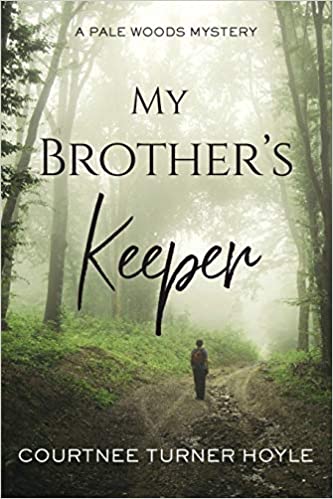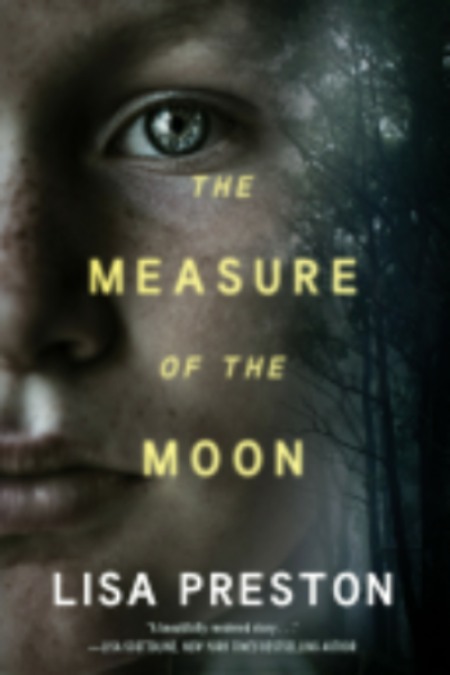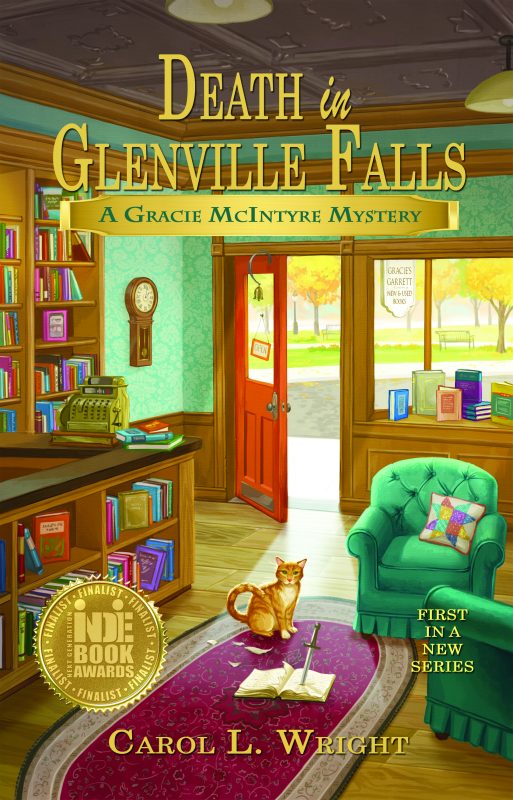The Brand Challenge Introduction
October 12, 2022 by Denise M. Colby in category The Writing Journey by Denise Colby tagged as Author Brand, Denise M. Colby, Marketing for Authors, The Brand ChallengeThis month, I’m introducing a concept called The Brand Challenge. It’s a way to encourage you to try something new on your website to help you build your brand.

Sometimes branding and dealing with your website can be challenging. The purpose of this challenge is to encourage you to just try. It doesn’t have to be perfect. It can even be something you decide to change later on. The idea is trying something new to keep propelling you forward in your Author career.
For a list to choose from, here are some ideas to help you with your Brand Challenge this month:
- Create a new blog post this month about a character, your story theme, or genre you write in
- Up your on-page SEO with each post and page (for help, I’ve created an On-Page SEO Checklist for you to download, and check out my past blog post Using a Blog SEO Checklist to Streamline Your Blog Post)
- Create a book page on your website for every book you have or are working on
- Link two or three pages on your website to one another using Anchor Text
- Design a social media post about the genre you are writing in, or a book you’ve read recently
Pick One Task A Month For This Brand Challenge
Again, I encourage you to do one thing on this list above to help build your brand. It may not seem much, or it may feel overwhelming. But just stick to one thing only for the entire month. Then do another thing the following month. Pretty soon, you’ll have many months of blog posts or content you didn’t have before.
I’m always amazed at how slow and steady can be the right way to approach brand building.
Sometimes we feel this urgency to hurry up that adds extra stress we don’t need as we are busy writing our next book.
I’d love to hear other ideas that can help you build your brand. Do you like the idea of a monthly Brand Challenge? Leave your thoughts in the comments below.
Blessings,
Denise
0 0 Read moreConsistently Write In Order to Meet Your Writing Goals
September 12, 2022 by Denise M. Colby in category The Writing Journey by Denise Colby tagged as Denise M. Colby, encouragement, writing processEach week my progress feels limited, but add the work all up together (it’s the 37th Monday of the year) and I’m finding that consistently writing a small amount week to week is working for me. It’s fun to check in mid-year, or in this case, September, and take a peek at the goals I set for the year. Am I even close? Did I miss my mark this year? Should I give up writing?

And learn I HAVE made progress.
It’s just so hard to see when we are going word by word, page by page.
Be Encouraged to Keep Writing Consistently
I want to encourage my writing friends to not give up. Set realistic goals for yourself on a week to week basis and keep plugging along. Stay steady. Be persistent.
Have I reached all my goals? No. But the year isn’t done yet. And yes, I have some far-reaching goals that can overwhelm me if I try to hurry up and get them done all at once. But this is where breaking tasks into manageable chunks help.
Put in the work (my word for the year) and you will see results. If you are like me, figuring out what that work should be in each stage of the process can be challenging. I’m not able to focus on my writing full-time at this stage in my life, so my writing consistently has to be squeezed in between my day job and the family commitments.
How do I do that?
Find The Schedule to Help You Consistently Write
At first I selected a specific day and time, one day a week. But that fell through when other required events popped up. Then I tried to just touch my ms sometime during the week. Constantly touching your MS even if it’s one page at a time is better than no writing at all. But it was hit or miss how far I would get and there wasn’t any accountability to myself to keep going.
Then a door opened that was exactly what I needed (which is something that has happened a lot in my writing journey). A new critique group came along at the perfect time within one of my writing groups. Out of all the writing clubs I belong too, this was really where I needed to put in the time. But I was afraid of the commitment. Yet it’s the commitment to consistently write that helps us complete a book. So finding the way that works for you to do that is key.
So this critique group came along at the perfect time. Sure I wanted my MS completely edited and ready to pitch ASAP. But instead I’m focusing on a chapter a week, by relooking at the scenes, editing, submitting and getting great feedback. And learning how to provide feedback back to others. Which has helped in many ways as well.
Overall, this has helped me streamline my story and make it stronger. And I’ve become a better writer. The bonus with working on this one writing task consistently every week? By the end of the year, I’ll have gotten feedback on every chapter. This was the accountability I needed.
Choose Your Own Way to Be Consistent
I’m not writing this post to encourage you to join a critique group. Maybe a critique group isn’t for you at this stage. For each writer, what helps you consistently write can be different. So know yourself. And spend some time figuring out what you need to do at this stage in your writing. What you need can change. Allow it to change. There just needs to be forward momentum (which happens when we consistently write) in order for us to reach our goals.
It’s the consistently writing, however we approach it, that counts.
Denise M. Colby loves to write words of encouragement blog posts. She also loves to write about her word of the year she chooses each year. She’s been working on her first manuscript for a long time and hopes to publish soon, since she has lots of other stories in her head waiting to be put on the page.
0 1 Read moreWhat’s All The Hype Over Keywords?
August 12, 2022 by Denise M. Colby in category The Writing Journey by Denise Colby tagged as Keywords, Marketing for Authors, SEO MarketingWe’ve all heard these statements: Use keywords in your blog posts. Up your SEO game with the right keywords. Keywords are the key. Keywords matter. So what is all the hype over keywords?

Here’s a simple definition:
Keywords are used in digital marketing to describe a word or group of words someone types in a search engine/search bar to perform a search.
As writers we use that search bar all the time for our research.
And that’s how our readers use the search bar too.
So when we write a blog post – think what your reader would possibly type in their search bar to find what you are writing. And use your search bar to test the keywords you are selecting.
The hype over keywords is no joke
Have you ever searched for something and had to change the wording several times to finally get to what you were looking for? That’s the keyword organization going on. The search engines have specific formulas to organize and index everything on the internet. When someone performs a search, they want to find relevant content. And why businesses in the SEO and search engine business hype the use of keywords all the time. And teach what they can on the subject. The better everyone uses keywords, the more organized internet content will be.
How do you write keywords?
Keywords are tricky. You can’t use the same ones twice. If you do, they sort of cancel each other out when being indexed. So, when you use only one word, it limits using that word ever again. So using two words and varying one of them for different scenarios would be a good strategy.
Another strategy is to not use words too broad or too narrow. Again, think about the terms you use when searching for similar topics. You want to land on the first page of the search. The more you research, you’ll start to see how to tweak and tailor your keywords to better fit.
Other tips for writing strong keywords
- Make sure posts and pages are focused and related to only ONE main idea. When you figure out your keyword FIRST, you write your blog post differently.
- Include your keywords in your title, first paragraph, a subhead or two, and the body text
- Use other relatable words that support the main topic through the post/page
- Include pictures that represent your keywords and add your keywords into the alt text
- Keywords can be tied into your Category and Tag strategy as well, especially if it’s a topic you cover frequently
- You could use your keyword phrase as your slug to keep things simple
Interested in learning more about SEO? Check out my Using a Blog SEO Checklist to Streamline Your Blog Post and/or sign up for my Marketing for Authors newsletter on my website.
0 0 Read more
Celebrate The Act of Gratitude
July 12, 2022 by Denise M. Colby in category The Writing Journey by Denise Colby, WritingAs we celebrate the Declaration of Independence this month, I wanted to share parts of a magazine article I wrote a few years back about freedom and the act of gratitude. I love reminders to be grateful in amongst the chaos of life. Including all the pieces that go with a writing career. I hope that it can be a source of encouragement to you. This was originally printed in WestCoast Magazine in July 2019. I’ve made some adjustments to fit a blog post rather than an article.

Another form of freedom we can celebrate is the act of gratitude. Google defines gratitude as “the quality of being thankful; the readiness to show appreciation for and to return kindness.” Wikipedia’s page takes it one step further and states; “Gratitude has been said to have one of the strongest links with mental health of any character trait. Grateful people are happier, less depressed, less stressed, and more satisfied with their lives and social relationships.”
I don’t know about you, but I would like to live a happier, less stressed life.
So how do we celebrate the act of gratitude?
We Can Show Gratitude With Words
Say ‘thank you’. It doesn’t matter how big or small the act is, saying these two words makes a difference. A quick email reply with the words thank you. If someone holds open the door, hands you something, pays you a compliment, or when the server delivers your food, just say thank you. It matters.
Write a note. Send a note to someone for whom you are grateful and tell them why. In my research I learned psychologists use this technique to help people with their overall mental health. Even just thinking or writing about someone you are grateful for can help.
Start a Gratitude Journal. I love to stop and think about what it is around me that I can be thankful for. It’s amazing the little things you will notice when you do this. Sometimes we are so caught up in our to-do list, we don’t stop to appreciate what is going on around us. Like the baby birds chirping, or the sun shining so that the flowers will open and bloom. If writing in a journal seems a bit overwhelming, another option is to write out three-five things you are thankful for at the end of the each day.
We Can Show Gratitude With Our Attitude
Change your perspective. Even in the mundane and ordinary parts of our life we can find ways to be grateful. I have to remind myself when the piles of mount clothesmore scream for attention, to say thanks for the clothes I have while I fold laundry. In the hurriedness of getting dinner on the table, I remind myself to say thanks for the options of what to put on the table, a table to sit at, and that it’s not the only meal for the day. When I get stopped at yet another red light, I stop and refocus my thoughts to be grateful for the vehicle I drive and the ability to be able to travel from one place to another. These small things are what life is all about. Being grateful for even the stressful stuff will help us deal with it better.
We Can Show Gratitude With Our Actions
Be kind. Kindness is defined as the quality of being friendly, generous, and considerate. Hold open the door, place flags on a cemetery grave, smile and say hi to a stranger. Celebrate someone else’s success, say a kind word, be encouraging in all your Facebook comments, offer to help, give compliments, and refuse to gossip. And don’t forget to be kind to yourself too.
Show grace. Grace means different things to people, but the dictionary’s definition is “goodwill” and synonyms include the terms tenderness, compassion, generosity, and kindness. None of us are perfect and we will make mistakes. Forgiveness, patience, understanding, or even just a hug to let someone know you care, can go a long way.
This year, as we celebrate our nations birthday, let us all show a little more gratitude toward others and ourselves.
Happy Birthday America!
As I write this, I want to show my own acts of gratitude with saying thank you to my fellow writers. The love and support from the writers in the writing groups I belong to is wonderful and something I appreciate. We don’t always get to interact live with one another, but sharing blog posts, emails, and everything in between has a huge impact in encouraging me to keep going. So thank you! I wouldn’t be here without you.
4 1 Read morePreserving Journals for the Future
June 12, 2022 by Denise M. Colby in category The Writing Journey by Denise ColbyAs a writer, I love to write in any form including journals, blogs, and books. Something about putting words on a page is so satisfying. But I’ve asked myself recently if I’m writing the right things in my journals. Do I capture words that will be preserved for the future? Should I start a journal for the future that’s more about the day to day then about special days or my feelings?

Hear me out. There’s a reason why I’m thinking about this in a different way. It’s not really about my own personal life and wanting to document it. It’s more about making sure how we live today is being captured for those who need this data in the future.
Journals are a Great Research Tool
As a historical writer, journals are invaluable to capturing the essence of the era we are writing. Long ago journals include terminology, names, and phrases of the time. There are recipes from our ancestors because they wrote them down. Which now are preserved and shared from person to person.
Also, a contemporary writer might have a character that is a teacher or plumber or Starbucks barista. They may need to learn about these positions. These journals could include lingo, interactions, schedules, a specific point of view, and more. They might gather these from blogs, more than journals, but the idea of finding content that helps explain the day to day in these lives is what I’m talking about.
I’ve even created a journal for my character so I could find her voice and figure out her feelings and perspective. I talk about this in my blog post on my website titled Incorporating a Character Journal In My Story. I now include a journal entry to the beginning of each chapter in my book.

Olivia Carmichael had no idea how much she would eat her words.
How Will The Future Read Journals?
Think of terms and phrases used in the past versus now. Terms such as binge mean something different now than 50 years ago. What would be other words or terms that might be obsolete in the future? What are terms that we no longer use today but represent a bygone era?
I sometimes feel silly writing down some of these more basic topics. But then I think about someone possibly reading it 100 years from now and realize that how we go about our day may be completely different in another century.
In today’s definition, journals could be blogs, notes in our phone, or actual books we handwrite in. And it will be interesting to see how people who keep and access these in the future. Personally I love handwriting. But it gets harder and harder to read someone’s writing either from faded ink or pencil or just reading handwriting itself as an art form is going away. I wrote a blog post about that a while ago titled Give A Gift That Lasts a Lifetime: A Handwritten Note. In some cases writing is more personal because of a person’s handwriting. I love coming across something my mom or dad wrote. It evokes an emotion in me that’s difficult to describe.
Will Journals Be Around in 100 Years?
To have a journal last 100 years, first people have to create them. Then they have to save them. Not by just the writer, but by someone who obtains them after the writer has passed. How many of us toss older books out? Or toss our own books out because we don’t think anyone will care. They may not care at 25-35 years, but something older? This is the future of a journal. The old adage – one person’s junk is another person’s treasure. A family member might think there’s nothing of importance in the journal, but a writer looking for specific details? It could be pure gold inside.
But what about blogs? To stay active, the account has to stay active. Where will all this content go in the future? How will these blog posts be preserved? I know. I’m causing anxiety where it’s not necessary. But being a history lover, I tend to think about these things often. Am I the only one?
Journals Preserved by Libraries
In rare cases, a library owns journals that are used by scholars who use them as reference materials. People of the past journaled for the future. My great great grandfather was one of them. He wrote detailed journals. A mountain man who faught in a war with Lincoln, was a trapper with Jedidiah Smith, and shared a campfire with the Donner party before they chose to ignore his warnings and take the short Sierra pass that ended in doom. We know all of this because of his journals. I have two printed versions of his journals in my possession, but I’ve also seen the real journals in person. These journals are owned by the Huntington Libary in Pasadena. And it’s been said they know what they know about that era, because of the details he captured.

He created journals used in his future, which is our present. What will our journals be used for?
Questions for the writer in all of us
I wanted to ask questions because I’m curious. And I think a dialogue would be advantageous for all of us. Do you read journals for your stories? Where do you go for your inspiration? Do you journal? If you do, do you write about your feelings? Describe the weather? Mention a list of daily activities? What type of content do you put in your journal?
Do you write daily? Are your journals organized by date or by topic? Ideas of specialized journals would be one for work related documentation and one for personal. Or a journal about movies, books, or other entertainment and another book for trips.
And last but not least, how do you think the world will use these journals in the future?
Curious minds want to know.
0 0 Read moreAffiliate Links
A Slice of Orange is an affiliate with some of the booksellers listed on this website, including Barnes & Nobel, Books A Million, iBooks, Kobo, and Smashwords. This means A Slice of Orange may earn a small advertising fee from sales made through the links used on this website. There are reminders of these affiliate links on the pages for individual books.
Search A Slice of Orange
Find a Column
Archives
Featured Books
WHISKEY LOVE
She's a headstrong Bostonian. He’s a laid-back Tennessean.
More info →THE MEASURE OF THE MOON
“If you ever say anything to anyone, they all die.”
More info →FREYA Viking Glory Book Two
What happens when an immovable object meets an unstoppable force? Sparks fly and love blooms.
More info →DEATH IN GLENVILLE FALLS
For Gracie McIntyre opening a new-and-used book shop gives her more than she bargains for.
More info →Newsletter
Contributing Authors
Search A Slice of Orange
Find a Column
Archives
Authors in the Bookstore
- A. E. Decker
- A. J. Scudiere
- A.J. Sidransky
- Abby Collette
- Alanna Lucus
- Albert Marrin
- Alice Duncan
- Alina K. Field
- Alison Green Myers
- Andi Lawrencovna
- Andrew C Raiford
- Angela Pryce
- Aviva Vaughn
- Barbara Ankrum
- Bethlehem Writers Group, LLC
- Carol L. Wright
- Celeste Barclay
- Christina Alexandra
- Christopher D. Ochs
- Claire Davon
- Claire Naden
- Courtnee Turner Hoyle
- Courtney Annicchiarico
- D. Lieber
- Daniel V. Meier Jr.
- Debra Dixon
- Debra H. Goldstein
- Debra Holland
- Dee Ann Palmer
- Denise M. Colby
- Diane Benefiel
- Diane Sismour
- Dianna Sinovic
- DT Krippene
- E.B. Dawson
- Emilie Dallaire
- Emily Brightwell
- Emily PW Murphy
- Fae Rowen
- Faith L. Justice
- Frances Amati
- Geralyn Corcillo
- Glynnis Campbell
- Greg Jolley
- H. O. Charles
- Jaclyn Roché
- Jacqueline Diamond
- Janet Lynn and Will Zeilinger
- Jaya Mehta
- Jeff Baird
- Jenna Barwin
- Jenne Kern
- Jennifer D. Bokal
- Jennifer Lyon
- Jerome W. McFadden
- Jill Piscitello
- Jina Bacarr
- Jo A. Hiestand
- Jodi Bogert
- Jolina Petersheim
- Jonathan Maberry
- Joy Allyson
- Judy Duarte
- Justin Murphy
- Justine Davis
- Kat Martin
- Kidd Wadsworth
- Kitty Bucholtz
- Kristy Tate
- Larry Deibert
- Larry Hamilton
- Laura Drake
- Laurie Stevens
- Leslie Knowles
- Li-Ying Lundquist
- Linda Carroll-Bradd
- Linda Lappin
- Linda McLaughlin
- Linda O. Johnston
- Lisa Preston
- Lolo Paige
- Loran Holt
- Lynette M. Burrows
- Lyssa Kay Adams
- Madeline Ash
- Margarita Engle
- Marguerite Quantaine
- Marianne H. Donley
- Mary Castillo
- Maureen Klovers
- Megan Haskell
- Melanie Waterbury
- Melisa Rivero
- Melissa Chambers
- Melodie Winawer
- Meriam Wilhelm
- Mikel J. Wilson
- Mindy Neff
- Monica McCabe
- Nancy Brashear
- Neetu Malik
- Nikki Prince
- Once Upon Anthologies
- Paula Gail Benson
- Penny Reid
- Peter Barbour
- Priscilla Oliveras
- R. H. Kohno
- Rachel Hailey
- Ralph Hieb
- Ramcy Diek
- Ransom Stephens
- Rebecca Forster
- Renae Wrich
- Roxy Matthews
- Ryder Hunte Clancy
- Sally Paradysz
- Sheila Colón-Bagley
- Simone de Muñoz
- Sophie Barnes
- Susan Kaye Quinn
- Susan Lynn Meyer
- Susan Squires
- T. D. Fox
- Tara C. Allred
- Tara Lain
- Tari Lynn Jewett
- Terri Osburn
- Tracy Reed
- Vera Jane Cook
- Vicki Crum
- Writing Something Romantic
Affiliate Links
A Slice of Orange is an affiliate with some of the booksellers listed on this website, including Barnes & Nobel, Books A Million, iBooks, Kobo, and Smashwords. This means A Slice of Orange may earn a small advertising fee from sales made through the links used on this website. There are reminders of these affiliate links on the pages for individual books.












































